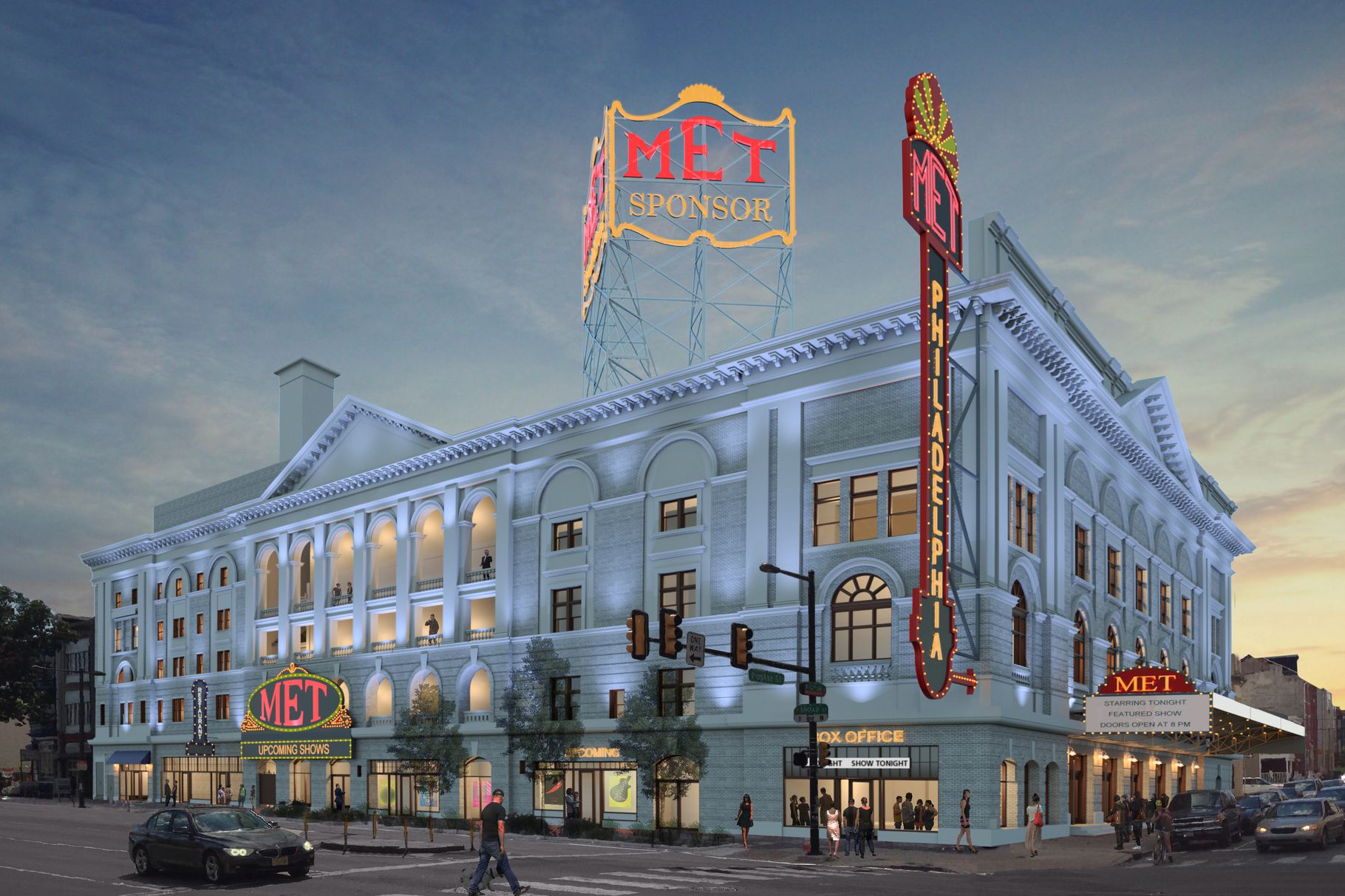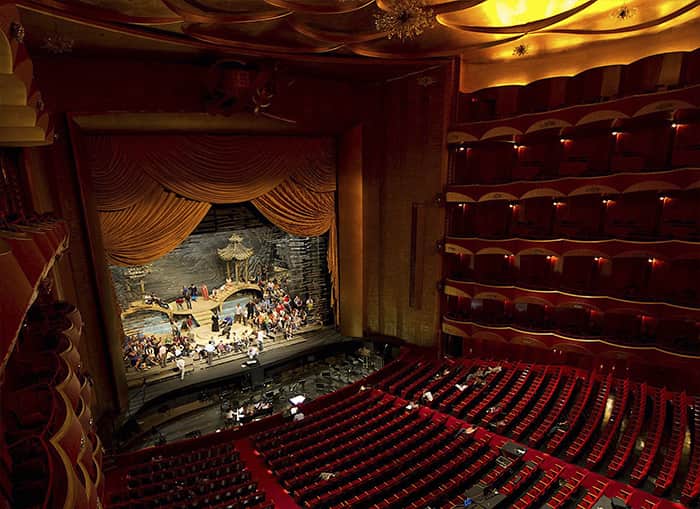
But on his return, late in the show, his voice had thinned to not much more than a whisper. (The mellow brawn of his bass voice, not heard at the Met enough these days, is wonderfully intact.) Anna Netrebko got a staircase on which to enact a chilling moment for Lady Macbeth, planning the murder of King Duncan, in Verdi’s “Macbeth.” Renée Fleming, singing two scenes in a row, got a living monument, Plácido Domingo, for a brief duet from Massenet’s “Thaïs.” Domingo, singing a baritone aria from “Andrea Chénier,” credibly made the first solo contribution of the evening. René Pape, in “Boris Godunov,” got a wooden throne to go with his richly colored costume and long stringy hair. There were a handful of actual design elements, and their rare use signified a certain megastar status. (One of the “Ah!” moments for the audience was when the urban rooftop setting-complete with virtual clothesline-of a scene from “Don Pasquale” re-drew itself into Baron Scarpia’s Roman apartment for Act II of Franco Zeffirelli’s beloved production of “Tosca.”)
Metropolitan opera series#
That a sequence of thirty-one musical numbers passed with such smoothness and inevitability was due not only to the professionalism of the orchestra and the dozens of superb singers but to the designer Julian Crouch, who, with the lighting designer Brian MacDevitt and with the staff of 59 Productions, created a series of virtual sets and projections that conjured up, with love and whimsy, a slew of Met productions from the recent and distant past. And, to commemorate the company’s arrival there, it put on a show that was imaginative and entertaining, and which contained a few surprises. The construction of Lincoln Center for the Performing Arts and of the new Metropolitan Opera House, which opened on September 16, 1966, was perhaps the largest single example in our history of the vigor and vision of that continuing enterprise. Like Russia, the United States had to play catch-up during the nineteenth century, to try and put down roots for an art form-classical music-that had flourished somewhere else. An artist such as this does not come out of nowhere.



But the performance, which was rapturously received, was a powerful reminder of this singer’s total commitment, resilience, and expressive power, and of the fact that, in Russia, the Verdi tradition runs deep. Yes, he was a bit unsteady, he was somewhat gaunt, and, as he sang “Cortigiani, vil razza dannata,” from Verdi’s “Rigoletto”-the searing, pleading, give-me-back-my-daughter aria-the wondrous voice wavered at moments midway through, Hvorostovsky’s breath control, which was always astonishing in its smoothness and capacity, began to falter.

The occasion was the gala celebrating the company’s fifty years at Lincoln Center, and the Russian baritone, who has been battling brain cancer in recent months and who was not scheduled to sing, showed once again his iron bond with the Met’s audience. Those looking for one of the superlative kind would have witnessed an example last Sunday evening, when Dmitri Hvorostovsky walked to the front of the Metropolitan Opera’s stage. There are standing ovations, and there are standing ovations.


 0 kommentar(er)
0 kommentar(er)
